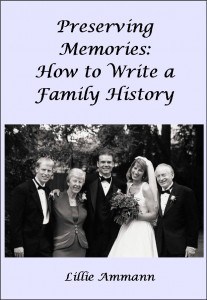 Today is I Love to Write Day, an observance established in 2002 by Delaware writer John Riddle. It’s a day to celebrate and encourage writing. Schools, libraries, bookstores, and organizations have activities to nourish and grow the love of writing. If you love to write, I Love to Write Day is an excellent occasion for you to demonstrate that love and write.
Today is I Love to Write Day, an observance established in 2002 by Delaware writer John Riddle. It’s a day to celebrate and encourage writing. Schools, libraries, bookstores, and organizations have activities to nourish and grow the love of writing. If you love to write, I Love to Write Day is an excellent occasion for you to demonstrate that love and write.
November is National Lifewriting Month. Lifewriting comprises a variety of genres. According to the Oxford Centre for Life-Writing at Wolfson College:
Life-writing involves, and goes beyond, biography. It encompasses everything from the complete life to the day-in-the-life, from the fictional to the factional. It embraces the lives of objects and institutions as well as the lives of individuals, families and groups.
Life-writing includes autobiography, memoirs, letters, diaries, journals (written and documentary), anthropological data, oral testimony, and eye-witness accounts. It is not only a literary or historical specialism, but is relevant across the arts and sciences, and can involve philosophers, psychologists, sociologists, ethnographers and anthropologists.
Most likely, lifewriting that is personal rather than academic will be in the form of memoir or family history. I am convinced that everyone should write their personal and family stories. In most cases, there won’t be a great interest in individual stories from the general public—unless the subjects of the memoir or family history are famous and infamous.
However, that doesn’t mean that your story doesn’t have great value. Everyone’s story is important to their loved ones and will be even more important to their descendants. As I wrote in Preserving Memories: How to Write a Family History, “your personal memoirs or your family history can be the greatest treasure you can leave your family because you’re sharing your life and yourself.”
Imagine how much you would appreciate having your great-great-grandparents’ personal stories. Your great-great-grandchildren will feel the same way about you. Not only can you share your day-to-day life, which will be fascinating to someone fifty or a hundred years in the future, but you can also pass on your values and beliefs.
The convergence of I Love to Write Day in the middle of National Lifewriting Month presents the perfect opportunity for you to start or work on your memoir or family history.
Share your thoughts and experience with lifewriting in comments. Have you started writing your life story or the history of your family? Why or why not? Do you agree that your story could be the best legacy you can pass on to future generations? Do you have any written records from your ancestors? How important are they to you or how much would you like to have them?
